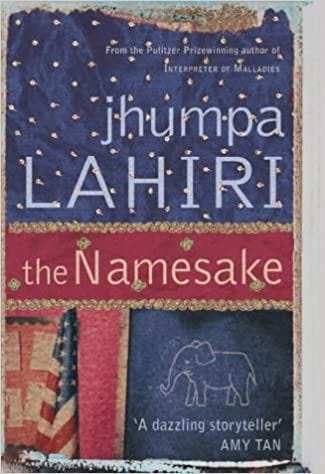
Hello new subscribers! Thank you so much for your trust.
For those who do not know me, I am an analyst with CS / product management background. I am actively studying how the future is studied, how complexities work, and how they are understood.
Today’s topic is the naming and identity of “Futures Studies”, which is a discipline you should look out for.
Every practical discipline is concerned with its future, and each have their own methods to predicting what’s next. Futures Studies is emerging as a crucial trans-discipline / meta-discipline (a discipline that studies other disciplines). Eerily, it has had many names. Futures Studies, Futurology, Mellontology, Futures, Futurism, Futuristics, Alternative Futures, Foresight, Forecast, Prospection …. (the list continues). I always struggled to explain the field — and I no longer use ‘Futurology’ because it sounds mystical and many confuse it with astrology (yikes).

Here’s a paper that discusses the issue of many names and the crisis of identity:
The Namesake: Futures; futures studies; futurology; futuristic; foresight—What’s in a name? (2010)
Written by Ziauddin Sardar. [1]
The Gogol who Changed his Name
The author begins to illustrate the issue of names and identities. He takes the example of a novel called ‘The Namesake’, in which a boy was named Gogol by his immigrant parents. He grew up being bullied for his heritage and for his name. Eventually he changed his name, but the bullying didn’t stop. You can have many names, and none of them will solve a crisis of identity.
Likewise, the discipline of studying the future had different names ever since it formalized in 1960s. (Before then, it was almost exclusive in concept to science fiction, with amazing novels such as Asimov’s Foundation Series). The main reason for these many names is that many researchers had different takes for what futures studies is.

The Many Names of Studying the Future
When the author discusses the names, he draws a lot of insights from a discussion that happened on the World Futures Studies Federation. He uses these aspects in his analysis of names:
epistemology of futures studies, example:
how do we generate our knowledge about the future? (through logic? arbitrary interpretation? … ?)
is knowing the future a possibility? (skepticism a must? how many truths are there? … ?)
history of futures studies. He gives a lot of weight on the history.
social aspects. What is the social connotation of a term and how did it rise?
Here are his notes on certain names:
Futurology
“Not only has futurology the connotation of crystal gazing and fortune telling, also, it has rather imperialistic connotations.”
The term ‘futurology’ was first introduced by Ossip Flechteim in his 1966 book History and Futurology. Socially, it does not resonate well.

Mellontology
If the study of alternative futures was an ‘ology’ ….. it could only be mellontology, from the Greek word mellon, meaning the study of time, past, present and future.
Who has ever used this term? No one, and that’s an observation the author makes as well.
Futuristics
It was popular in the 60s and 70s. The author thinks it did not catch on because it’s a bit of a tongue twister.
Futurism
“‘Futurism’ should be avoided at all cost.”
Interestingly, the futurist community reject ‘ism’ because “it’s a label associated with the far right radical art movement that flourished in Italy during the early twentieth century.”
The author criticizes the use of ‘Futurism’ in Warren Wagar’s treatise: The Next Three Futures.
[anyone who uses the ‘ism’ term] is (1) unconsciously allying himself with a fascist movement and (2) revealing his ignorance of a major movement of twentieth century art.
He otherwise praises the treatise, but laments that the term smudged its quality.

Foresight
This is used in some parts of the world mainly because it implies an action in the present NOW, but the author thinks there are two problems with it: One, it’s not a universal term (i.e. not translatable to all languages). Two, it only comes in singular form (i.e. we can’t have Foresights), this is an issue because it ‘does not allow multiple possibilities.’ He also thinks that Futures Studies implies action in the NOW as well.
Structuring the Names
Sardar (now I decide to call him by his name), says that the most important thing is that the structuring/topology of names is pluralistic to reflect the different approaches.
So how should we pick the name?
Sardar thinks a name should always be open to the nature of the study and should deeply consider its history.
What is the nature of Futures Studies?
He goes to draw from his own analysis of what futures studies are:
First Law: futures studies are wicked
Wicked as in complex, interconnected, and uncertain. The landscape of futures studies are always changing.
Second Law: futures studies are MAD
MAD as in Mutually Assured Diversity. There are many different ways to be human, and the human condition is subject to the culture. From an epistemic perspective, the knowledge of futures studies is “socially constructed.”
Third Law: futures studies are skeptical
We can’t know the future with certainty. Examining everything with an eye of constructive skepticism is a mandate.
Fourth Law: futures studies are futureless
In other words: it is futile to discuss where futures studies is heading. He thinks we should focus on the consequences of the present and the immediate future.
Conclusion: we shouldn’t focus on the name. We should focus on application, on its nature, and on its history.
Futures studies have faced a crisis of identity and meaning. Changing names does not solve that. Studying the history of futures studies is important because we learn a lot of wisdom from past mistakes and discussions.
(I omitted a lot from the philosophical discussion. For more depth please refer to the paper.)
Some questions to wonder about:
How can having more formally educated futurists change the economy? society? the arts?
Job-education alignment ratios are low already, there are many who practice something they didn’t study. What if those had a futures studies background instead of what they studied?
How many jobs currently really need futurists?
I, Najla, solemnly swear I’m interested in reading your thoughts. ☺
If you know someone who might enjoy paper summaries on meta-disciplines (complexity, futures, philosophy … ), they can subscribe using the button just below. It would be appreciated in the present and in the future 🥰.
[1] Sardar, Ziauddin. "The Namesake: Futures; futures studies; futurology; futuristic; foresight—What's in a name?." Futures 42.3 (2010): 177-184.
p.s. if my inconsistent capitalization of Futures Studies bothered you, I apologize. I know how painful it could be. Today, I will deeply contemplate whether I should stick with ‘futures studies’ or glamorize the discipline with ‘Futures Studies’ (or I could just refer to proper noun capitalization rules).

Hi Najla, I can't help but relate the socially constructed nature of future ideas with Stuart Kauffman's concept of TAP (the adjacent possible), the plausible set of possible futures are lurking on the edge of the present ideas, the underlying network then provides the ground for probabilities of these futures, this explains MAD. The intent of our future studies can be deduced by the quality of the networks ideas incubate.